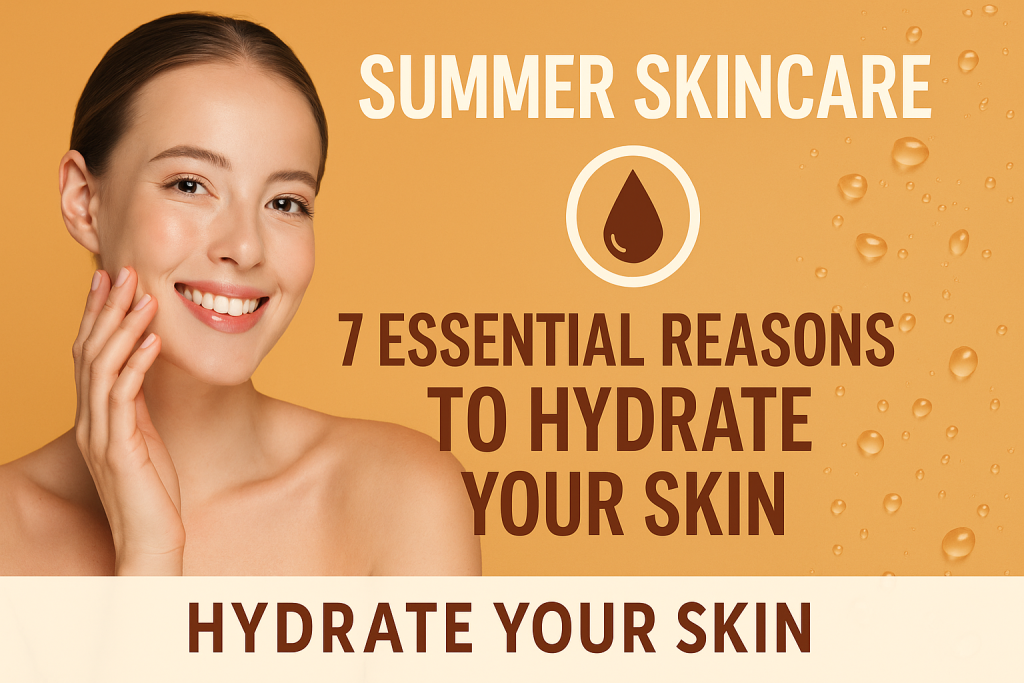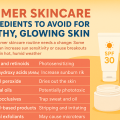Understanding Skin Hydration and Its Importance
As temperatures rise, proper skin hydration becomes more critical than ever. Hydrated skin isn’t just about appearance—it’s about health, comfort, and protection. During the summer months, our skin faces increased challenges from heat, humidity, and environmental exposure. Without sufficient hydration, these factors can lead to a wide range of skin issues, from dryness and irritation to premature aging.
Dehydration impacts the skin’s ability to function as a protective barrier. This can result in increased sensitivity, dullness, and a higher risk of sun damage. Understanding why hydration is essential in summer will help you adapt your skincare routine and maintain a healthy, glowing complexion all season long.
1. Increased Water Loss Due to Heat and Sun Exposure
Summer heat and sun exposure accelerate the process of transepidermal water loss (TEWL), which is the loss of water from the skin to the environment. High temperatures cause us to sweat more, and while sweating helps regulate body temperature, it also contributes to dehydration if fluids aren’t replenished.
According to dermatologists, your skin can lose up to 25% of its moisture content during hot, sunny days. Add in activities such as swimming or exercising outdoors, and the rate of water loss increases even more. This makes it crucial to replace lost moisture through both topical skincare and adequate fluid intake.
Signs Your Skin Is Dehydrated
- Feeling tightness or discomfort
- Flakiness or rough texture
- Lack of natural radiance
- Fine lines appearing more pronounced
If you notice these symptoms, it’s a sign that your skin needs immediate hydration and protection from further moisture loss.
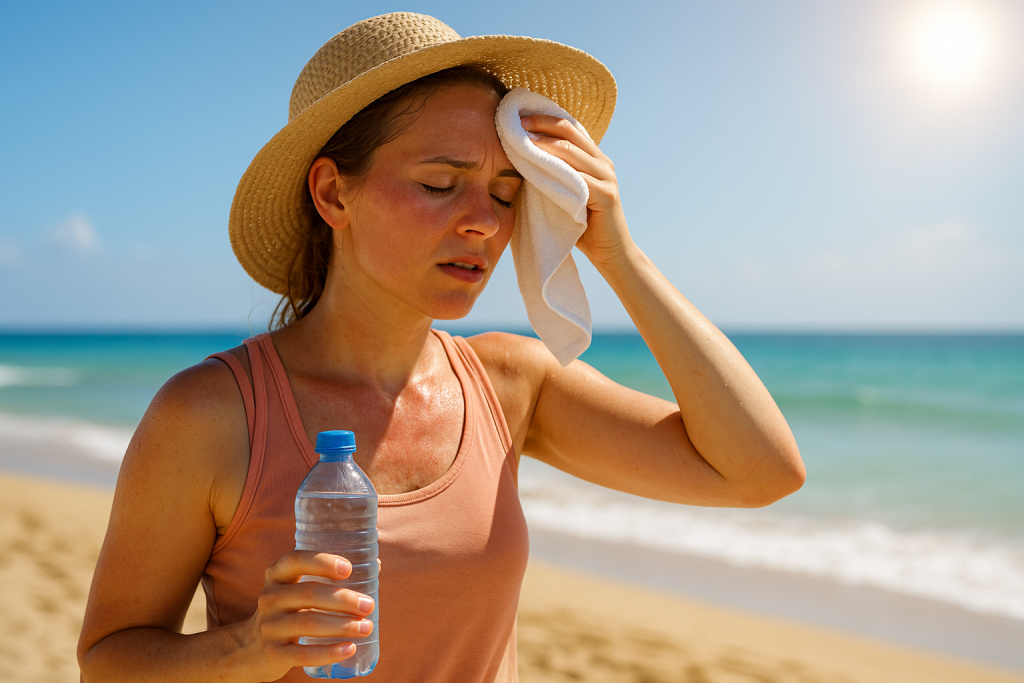
2. Protection Against UV Damage and Environmental Stressors
During summer, UV radiation is at its peak. Hydrated skin is more resilient and better able to fend off environmental aggressors like sunlight, pollution, and wind. A well-moisturized stratum corneum (the outermost skin layer) maintains a stronger protective barrier, minimizing the penetration of harmful substances.
Studies show that parched, dehydrated skin is more prone to sunburn, irritation, and inflammation. Moisturizing regularly and using hydrating serums can reinforce your skin’s natural defenses, making it less susceptible to long-term sun damage and premature aging.
Combining Hydration with Sun Protection
Pairing hydrating moisturizers with broad-spectrum sunscreen amplifies protection. Look for sunscreens formulated with ingredients like hyaluronic acid or glycerin, which offer both UVA/UVB defense and moisture retention.
3. Preventing Acne and Breakouts
Contrary to popular belief, hydrating your skin does not cause more oil or breakouts—in fact, it can help prevent them. In hot, humid conditions, people often skip moisturizers to avoid feeling greasy. However, when skin becomes dehydrated, it responds by producing even more oil to compensate, resulting in clogged pores and acne.
Opting for lightweight, non-comedogenic moisturizers can help maintain hydration without causing excess shine or congestion. Hydrated skin maintains a balanced oil production cycle, reducing the likelihood of summer breakouts.
Tips for Acne-Prone Skin in Summer
- Choose oil-free gel moisturizers
- Look for hydrating ingredients like aloe vera and niacinamide
- Maintain a consistent cleansing routine to remove sweat and sunscreen residue
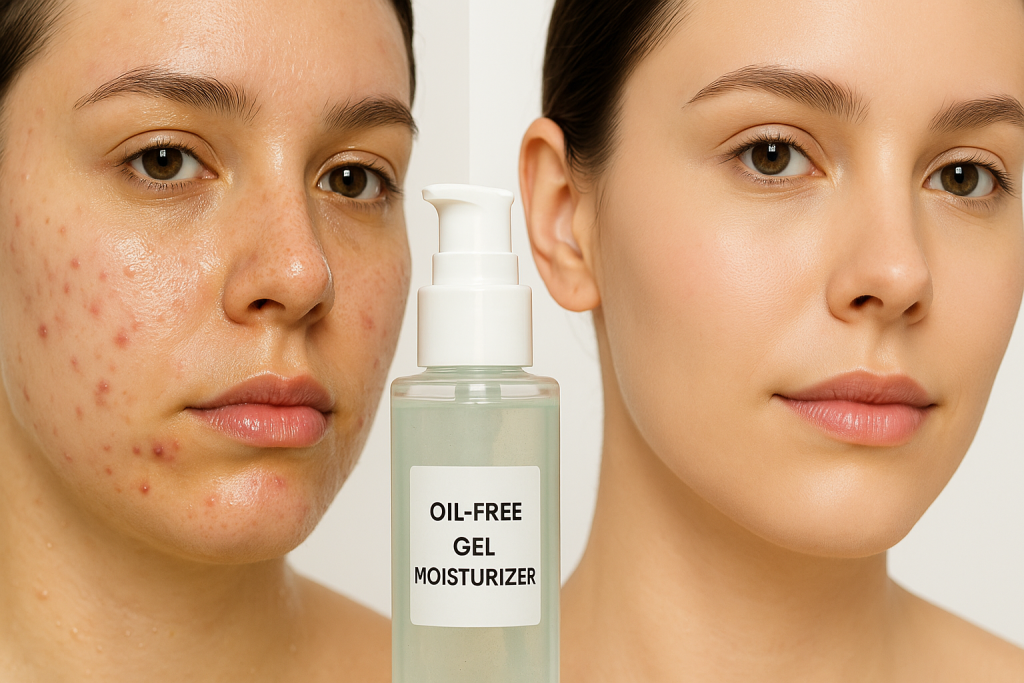
4. Enhancing Skin Repair and Recovery
Hydrated skin is more capable of self-repair. UV exposure, heat, and environmental pollutants can cause micro-damage to the skin barrier. Adequate hydration supports the skin’s natural healing processes, encouraging the production of new cells and the repair of damaged tissue.
Without sufficient moisture, skin recovery slows, and you may notice lingering redness, peeling, or uneven texture after sun exposure. Applying hydrating serums, masks, and creams rich in antioxidants can help speed recovery and reduce visible damage.
Best Ingredients for Skin Repair
- Hyaluronic Acid: Attracts and retains water for plumper, healthier skin.
- Vitamin E: Helps soothe and repair sun-stressed skin.
- Panthenol (Vitamin B5): Promotes cell regeneration and healing.
5. Maintaining a Radiant, Youthful Glow
Nothing says summer like fresh, glowing skin. Dehydration leads to dullness and the accentuation of fine lines, making you look tired and older. By keeping your skin well-hydrated, you’ll enhance its natural luminosity and softness. Moisture plumps up skin cells, making your complexion look smoother, firmer, and more refreshed.
Incorporate hydrating facial mists, serums, and lightweight creams into your daily routine. Drinking plenty of water also reflects on your skin’s vibrancy and helps flush out toxins for a clearer, brighter look.
Daily Habits for a Summer Glow
- Spritz a hydrating mist throughout the day
- Apply a water-based serum morning and night
- Eat water-rich fruits like watermelon and cucumber
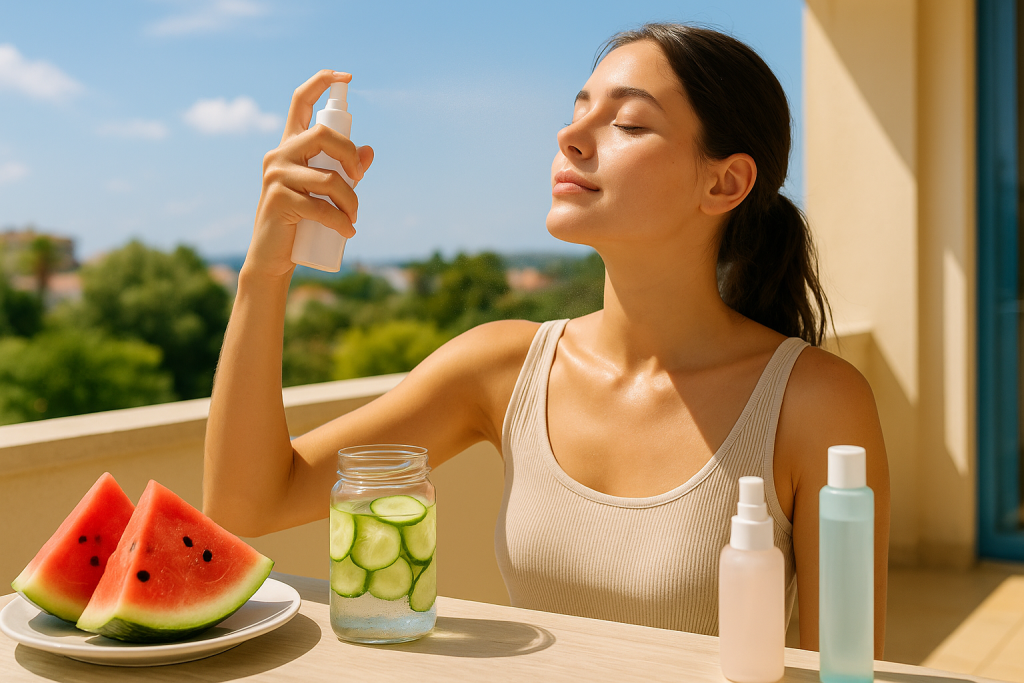
6. Preventing Itchiness, Redness, and Sensitivity
Summer skin often becomes sensitive and reactive due to increased exposure to sun, saltwater, and chlorine. Dehydrated skin is more likely to experience itchiness, redness, and even flare-ups of conditions like eczema or rosacea. Replenishing lost moisture strengthens your skin’s tolerance to external irritants, reducing discomfort and visible redness.
After sunbathing or time in chlorinated pools, use soothing lotions or after-sun gels with hydrating and anti-inflammatory ingredients such as aloe vera, chamomile, or calendula for immediate relief and recovery.
Soothing Ingredients for Sensitive Summer Skin
- Aloe Vera: Calms and hydrates irritated skin
- Allantoin: Helps reduce redness and supports barrier repair
- Oat Extract: Soothes inflammation and dryness
7. Supporting Healthy Skin Function All Summer Long
Your skin is your body’s first line of defense against the environment. In summer, this defense can be compromised by factors like heat, sweat, and frequent washing. Consistent hydration is key to keeping the skin barrier strong, supple, and effective in keeping out harmful bacteria, allergens, and pollutants.
Healthy, hydrated skin is less prone to infection, heals quickly from minor scrapes or sunburn, and simply feels better. Establishing a summer skincare routine centered around hydration lays the foundation for lifelong skin health, regardless of age or skin type.
Practical Tips to Keep Skin Hydrated in Summer
Staying hydrated during the summer months requires more than just drinking water. Here are actionable tips to ensure your skin receives the moisture it needs:
- Adapt Your Skincare Products: Switch to lighter, hydrating formulas such as gels or water-based creams.
- Apply Moisturizer on Damp Skin: This locks in extra moisture and maximizes absorption.
- Use Humidifiers: Especially important if you’re in air-conditioned environments, which can strip moisture from the air and your skin.
- Avoid Overly Hot Showers: Hot water can damage the skin’s barrier and lead to further dehydration.
- Reapply Hydrating Sunscreen: Choose sunscreens with moisturizing agents and reapply every 2 hours when outdoors.
- Drink Plenty of Fluids: Water, herbal teas, and water-rich foods all contribute to skin hydration from the inside out.
- Limit Alcohol and Caffeine: Both can dehydrate your body and your skin.
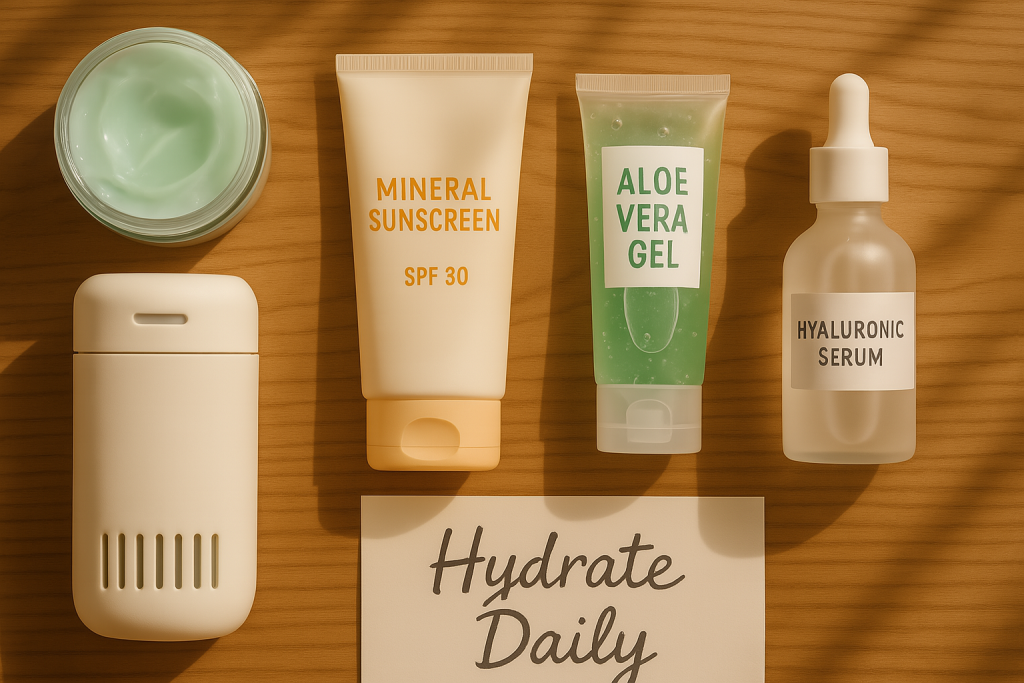
Conclusion: Make Hydration Your Summer Skincare Priority
Summer brings sunshine, outdoor fun, and new skincare challenges. By understanding the seven essential reasons for hydrating your skin in summer—ranging from protection against heat and sun to preventing irritation and supporting repair—you can maintain healthy, glowing skin all season long. Adopt practical hydration strategies, choose the right products, and pay attention to your skin’s unique needs for the ultimate summer radiance.
